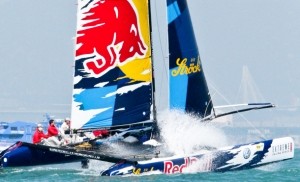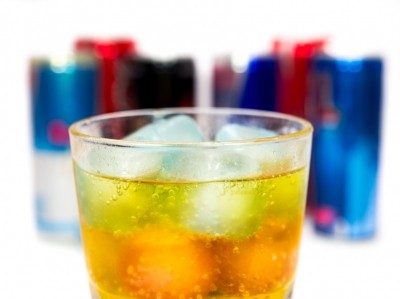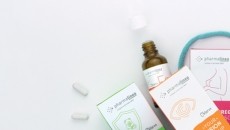Big Tobacco eyes caffeine growth with oral strips

The product – which contains 20 mg of caffeine per strip in a £2.50 (€3.35) eight-strip pack – has been launched by Imperial Tobacco’s subsidiary firm Fontem Ventures, founded in 2013.
Released initially online and in the UK’s second largest city, Manchester, Fontem Ventures said the Grapefruit & Zing, Lemon & Hot and Blackcurrant & Fresh flavoured product was a “quicker, more convenient and smarter alternative to [the] usual caffeinated soft drinks”.
Olga Rusnak, lifestyle energy category director at Fontem Ventures and previous head of strategic foresight for Imperial Tobacco, said its research had shown there was currently an uncatered-for market of young, urban professionals who sought a daily caffeine boost but not necessarily “extreme” energy drinks.
A safety story
The company advises the consumption of no more than three strips a day – amounting to 60 mg of caffeine out of the pack’s total of 160 mg. The product, classified as a food supplement, carries the front-of-pack consumption warning to pregnant women and children according to the recently enforced Food Information to Consumers (FIC) regulation.
“But this is not really a warning, it’s a notion and we act as a responsible company and we want to provide the information to consumers.”
This month the European Food Safety Authority released its long-awaited safety assessment of caffeine, which stated that up to 400 mg of caffeine a day and 200 mg in a single dose for a general adult population was safe.
The caffeine content of a single can of Red Bull is 80 mg/250 ml, while an average cup of coffee contains around 95 mg.
Fontem Ventures innovation concept manager and former Imperial Tobacco senior trends and foresight analyst Anna Kaarow said the company had followed the developments around caffeine closely and was pleased to see EFSA had not deemed dosages below these upper limits dangerous for the general adult population.
“But we recognise that everybody is different so this is just a guideline.”
Targeted NPD
Rusnak and Kaarow declined to comment on why Imperial Tobacco – the world’s third biggest cigarette maker – had decided to diversify into the energy sector.
The tobacco sector has faced regulatory challenges in recent years with things like public smoking bans meaning declining numbers of people who smoke in at least some countries in Europe. Earlier this month the UK government said it would be pushing through plans for Australian-style plain packaging legislation, something Imperial Tobacco has opposed.
The pair did say though that this launch was just the first step in Fontem Ventures’ NPD plans, with a few other products in the pipeline but too commercially sensitive to discuss.
They said these products would be focusing on this idea of convenient energy for people rushing from meeting to meeting.
They added they had made a deliberate decision not to go down the marketing route of linking with extreme sports as many energy drink companies such as Red Bull have done.
“Our research shows that our demographic doesn’t find this appealing – in fact they find it alienating as they just can’t associate with that lifestyle. The messages they send are quite polarising,” Rusnak said.
Besides this different marketing package, the product itself steered clear of factors of energy drinks that may put some people off.
Kaarow added: “Our insights show many people don’t want extreme energy products. Our product is more in the [caffeine content] area of coffee or chocolate, so not an area where there’s this bad press. We also leave out a lot of the bulk like sugar,”
The product contains the artificial sweetener sucralose and about one calorie per strip.
Like a gum or mint
Instead they saw this product being marketed as an “acceptable” everyday product like a gum or mint initially in retailers like gyms and commuter hotspots around Manchester, a city they said fitted with the modern image they were trying to promote.
The six month-pilot in Manchester – the success of which will determine the company’s next move – kicked off with a “morning rave” promotion by the city’s central train station.
Kaarow and Rusnak said this was a play on the word 'rave', since the event involved DJs, massages, yoga instructors and breakfast and represented an alternative lifestyle. They would not be considering nightclub promotions for the product.



!['The 400mg [daily] upper limit should also not be understood as a green light for consuming up to five energy drinks a day,' says consumer group BEUC.](/var/wrbm_gb_food_pharma/storage/images/_aliases/wrbm_medium/7/2/9/6/1956927-1-eng-GB/EFSA-caffeine-opinion-is-not-a-green-light.jpg)












